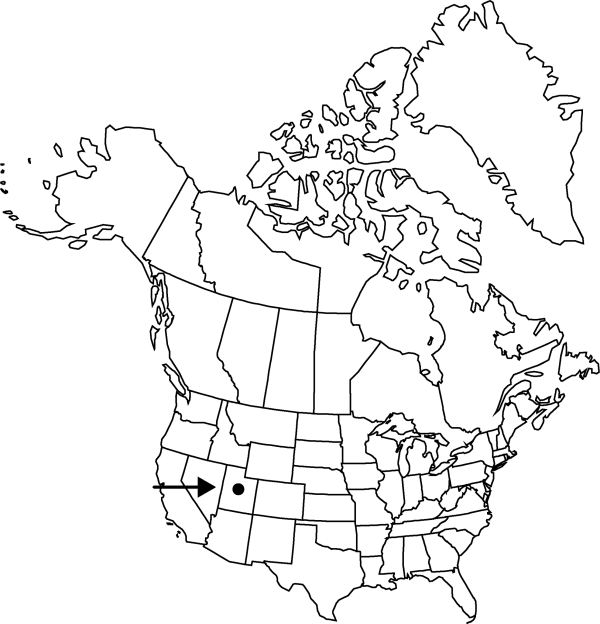Pediocactus despainii
Great Basin Naturalist 40: 83, fig. 5. 1980.
Plants typically unbranched. Stems subglobose to obovoid, 3.8–6 × 3–9.5 cm; areoles circular to oval, villous to glabrate. Spines smooth, relatively hard, all radial, 9–15 per areole, spreading, white, 2–6 mm. Flowers 1.5–2.5 × 1.8–2.5 cm; scales and outer tepals minutely toothed to entire and undulate; outer tepals yellow-bronze to peach-bronze or pink with purple midstripes, 4–10 × 3–6 mm; inner tepals yellow-bronze to peach-bronze (rarely pink), 6–12 × 4–6 mm. Fruits green, drying reddish-brown, turbinate, 9–11 × 10–12 mm. Seeds black, 3.5 × 2.5 mm, shiny, papillate and rugose.
Phenology: Flowering spring.
Habitat: Desert pavements of cobble or pebble in pinyon-juniper woodlands
Elevation: 1500-1800 m
Discussion
Of conservation concern.
Population-level studies of chloroplast DNA (J. M. Porter et al. unpubl.) confirm a close relationship between Pediocactus despainii and P. winkleri. Genetic relationships among populations correspond to geographic features of the region: populations with the San Rafael Swell represent one group of related populations, and populations south of the San Rafael Swell represent another group of related populations. This pattern conflicts in some ways with morphology. While all of the populations south of the San Rafael Swell are classified as P. winkleri, within the Swell some populations are P. despainii, several are P. winkleri, and a few are morphologically intermediate.
Selected References
None.
Lower Taxa
"thin" is not a number. "broad" is not a number.
